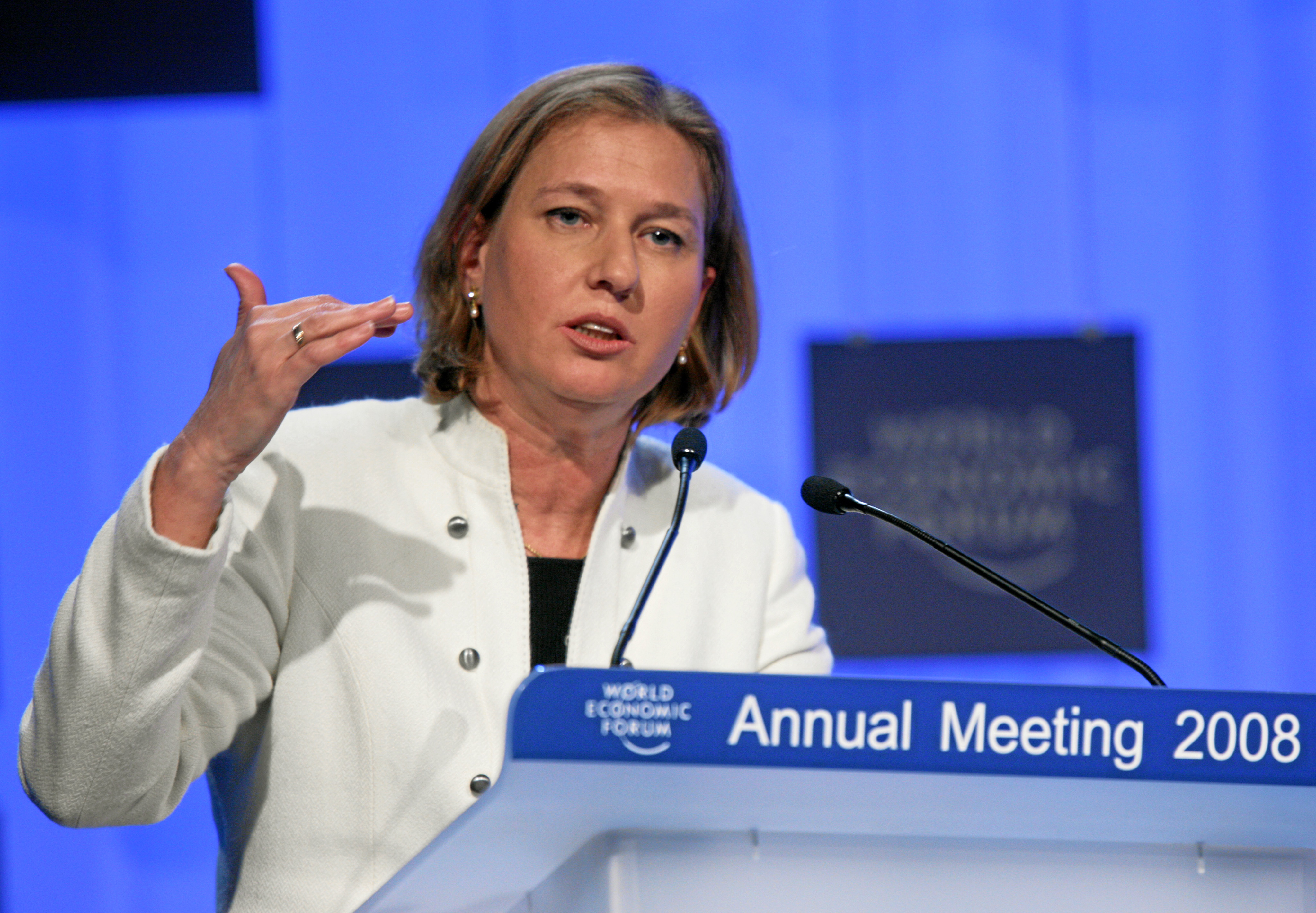A quick background to the Israeli government: The way the Israeli elections works is extremely different from elections in the U.S.. First of all, there are numerous parties, not like United States’ two central parties. When an election is held for the Israeli parliament, the percentage of votes casted for a party means the percentage the party is represented in the government.

Tzipi Livni? Who is she? Many of us outside of Israel have never heard of Livni, and you can’t blame us. Livni is currently the acting prime minister of Israel, and was previously the Minister of Justice, Minister of Regional Cooperation, Minister of Agriculture and Rural Development, Minister of Immigrant Absorption, and Minister of Housing and Construction. In her very early career, she was a Mossad (Israel’s equivalent of the United States’ CIA) agent, and had a role in covert operations during the 1982 Lebanon War. She was ranked the 52nd most powerful women in the world in 2008 by Forbes, 39th most powerful women in the world in 2007, and 40th most powerful women in the world.
Just a week ago, the Israel’s 2009 legislative elections ended. It was an extremely close call for Livni, who was running to defend her position as acting prime minister of Israel. In fact, Livni won with such a close margin that many have suggested that Livini’s victory could have been due to women voters. This was the article which inspired me to write this blog post:
http://uk.reuters.com/article/worldNews/idUKTRE51852B20090209
After reading the article, I was extremely surprised at Livni’s blatant attempts to use her gender to her advantage. Livni’s party had many billboards plaguing Israel promising a “different kind of prime minister” and “urged Israelis to elect the country’s first women prime minister in three decades”. Just like Hillary, Livni avoided using the gender card until the few weeks leading up to the election. With so much experience in the government, I thought that it was very interesting of her to evoke gender by including simple statements in her speeches like “I make decisions, not
 coffee”. In the days leading up to the elections, Livni even went an extra step to exploit her gender by making visits solely to please the feminist crowds. Once such event was a techno dance rally for women. (see the picture) Just behind Livni, a slogan states “Gentlemen, the time has come for women”. Such usage of gender was also seen on Livni’s opponents. The Likud party, a major opponent of Livni, even ran a sexist and anti-feminist campaign stating that the role as prime minister is too big for Livni.
coffee”. In the days leading up to the elections, Livni even went an extra step to exploit her gender by making visits solely to please the feminist crowds. Once such event was a techno dance rally for women. (see the picture) Just behind Livni, a slogan states “Gentlemen, the time has come for women”. Such usage of gender was also seen on Livni’s opponents. The Likud party, a major opponent of Livni, even ran a sexist and anti-feminist campaign stating that the role as prime minister is too big for Livni.Gender seems to play a larger role in today’s politics and not just in America. This may be because our society today is unable to change our traditional values, a belief that women should not have leading roles. However, we now see females in governmental roles even in predominant Muslim countries, where females were treated like second-class citizens. However, this does not mean that politicians and leaders should be able to use gender to their advantage. Do you think that Livni’s “gender card” is justified? Was her opponent’s anti-feminist slogans fair?

1 comment:
I think that Livni's playing of the "gender card" was justified. Like you mentioned, she had the political experience to be considered a qualified candidate. She held many positions as Minister of different fields, and she was also very active in trying to resolve the Israeli-Palestinian conflict. I think it was acceptable that she played the gender card since she did have the experience to go along with it. It would be one thing if a completely unqualified candidate were trying to run for office solely on gender, but this is not what she was doing. I think it was interesting, however, that she chose not to accept her offer to join the Israeli government (http://www.telegraph.co.uk/news/worldnews/middleeast/israel/4863340/Tzipi-Livni-rejects-offer-to-join-Israel-government.html). Maybe she saw the unfairness in the election-- the bias and gender role expectations that Israeli citizens, like American citizens, cannot seem to let loose. This was the first Israeli election in which the party with the most seats was not asked to govern. Why? Could the fact that she is a woman possibly have influenced this?
Post a Comment